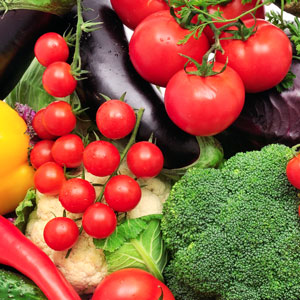 Do you worry about getting enough vitamins on your Keto diet?
Do you worry about getting enough vitamins on your Keto diet?
You have cut out vitamin-rich foods like fruit and grains due to their high carb content.
But you know that vitamin deficiency is not good. And some people still go on about low-carb diets being unhealthy.
So can you get enough vitamins from low-carb Keto foods?
The answer is yes, definitely. You just need to spend your carbs allowance wisely.
Choose the most vitamin-dense low-carb foods to get the best of both worlds.
Below is our list of top low-carb foods that are also great sources of vitamins. You can incorporate them into your diet easily.
Have these foods regularly and you never have to worry about your vitamin intake!
1. Green Leafy Vegetables:
Spinach, Kale, Collards, Swiss Chard
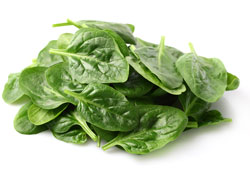 High in: A, C and K vitamins
High in: A, C and K vitamins
Number one low-carb, vitamin-rich food group is the famous green leafy vegetables. The ratio of carbs versus vitamins is amazing.
These should really be a staple food on a low-carb diet. Try to include them to at least one of your meals a day.
Fat is the key to making them taste nice. Dress them generously in butter, coconut oil or your preferred vegetable oil.
- As a side dish – boiled, steamed or fried
- Added to soups and stews
- As base for salads
- Added to smoothies
2. Red peppers
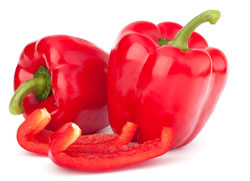 High in: vitamin C
High in: vitamin C
When you think about vitamin C, do oranges come to mind?
Did you know that humble red peppers have double the amount of vitamin C than oranges? And just a fraction of the carbs.
- Fresh as a snack – cut into strips (perhaps with a creamy low-carb dip)
- As a side dish – roasted or grilled
- Added to soups, stews and stir fries
- Added to salads
3. Brussels sprouts
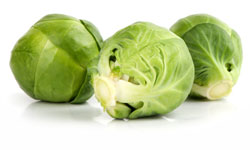 High in: C and K vitamins
High in: C and K vitamins
Love them or hate them, these tiny cabbages are nutritional gems.
I blame their reputation of blandness on boiling. Fry or roast them instead, with plenty of fat, salt and pepper.
Bacon is a good friend to Brussels sprouts – helps to bring out their more adventurous side – so try frying them together.
- Steamed and dressed with butter or oil, and plenty of seasoning
- Roasted with olive oil
- Fried with strips of bacon or pancetta
4. Broccoli
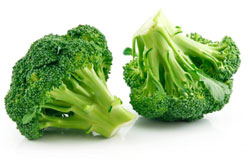 High in: C and K vitamins
High in: C and K vitamins
Broccoli has a similar nutritional profile to Brussels sprouts, but is more versatile.
It can play a central role in soups, frittatas and gratins. Strong-tasting cheese (like cheddar, stilton or parmesan) is a good companion for broccoli.
- Steamed or boiled in small amount of water, dressed with butter
- As a soup base, especially when combined with cheese (e.g. stilton, cheddar) or cream
- Grated and added to frittatas, gratins and breakfast muffins
5. Strawberries
 High in: vitamin C
High in: vitamin C
We know berries are a great low-carb treat, but which one is the best?
For vitamin C content, strawberries beat the competition easily.
- fresh – on their own, or with whipped cream and a little sweetener
- when not in season, use frozen strawberries in smoothies and desserts
6. Grass-fed red meat (beef, pork, lamb)
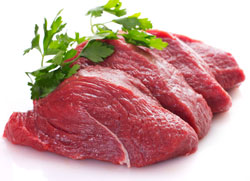 High in: B-vitamins
High in: B-vitamins
I am probably preaching to the converted here – but red meat definitely belongs on this list. It has more B-vitamins than many vegetables.
Meat source matters for vitamin content. Wherever possible, opt for grass-fed, free-range and organic options – they contain more vitamins.
- You know this already! Pretty much any cooking method can be used for meat. Roasting, frying, grilling, barbecuing, stir-frying, sautéing, boiling, a la tartar… etc etc etc
7. Liver and other offal meats
 High in: A and B vitamins (especially strong in B-12)
High in: A and B vitamins (especially strong in B-12)
Many people go “ew” at the thought of liver or other offal meats.
This is good – relative lack of popularity means much lower prices. So you can get a decent chunk of tasty animal protein, packed with more vitamins than red meat, at a much lower price.
If you are truly hardcore, consider less common offal meats like heart, tongue and chicken hearts. You can buy them direct from organic farms (many do online deliveries these days), or from some ethnic butchers.
- Fry in butter – gently and quickly – then have on its own or make into a pate
8. Oily fish
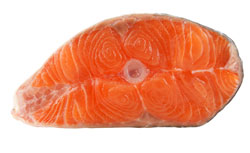 High in: vitamin D and B-vitamins
High in: vitamin D and B-vitamins
Oily fish already has great PR for its omega oils content. But it is also the best food source of vitamin D.
We get vitamin D from sunlight, but if you use sunscreen regularly (which you should), then you might benefit from one more source.
- Steamed
- Roasted
- Fried
- Raw as sashimi. (Please note that not all fresh fish is sashimi-grade – check this with your fish supplier if you are planning to make your own sashimi.)
9. Almonds
 High in: vitamin E and B-vitamins
High in: vitamin E and B-vitamins
And last but not least, a low-carb dieter’s favourite nuts – almonds. Ground almonds are a popular substitute for flour in low-carb baking and cooking.
Almonds are rich in vitamin E. This vitamin has fewer food sources than other vitamins, and usually comes from seeds and vegetable oils.
- Have them raw or roasted as a snack
- Use ground almonds as flour substitute in baking and cooking
- Use almond butter as a spread
Keto Multivitamins
Still worried? Take a multivitamin that’s been designed to support low-carb and Keto diets, to bridge any potential gaps and give you complete peace of mind.
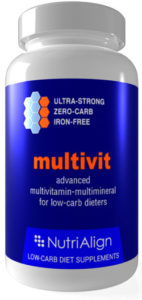
Buy Nutri-Align Multivit on Amazon – Multivitamins Designed for Low-Carb and Keto Diets
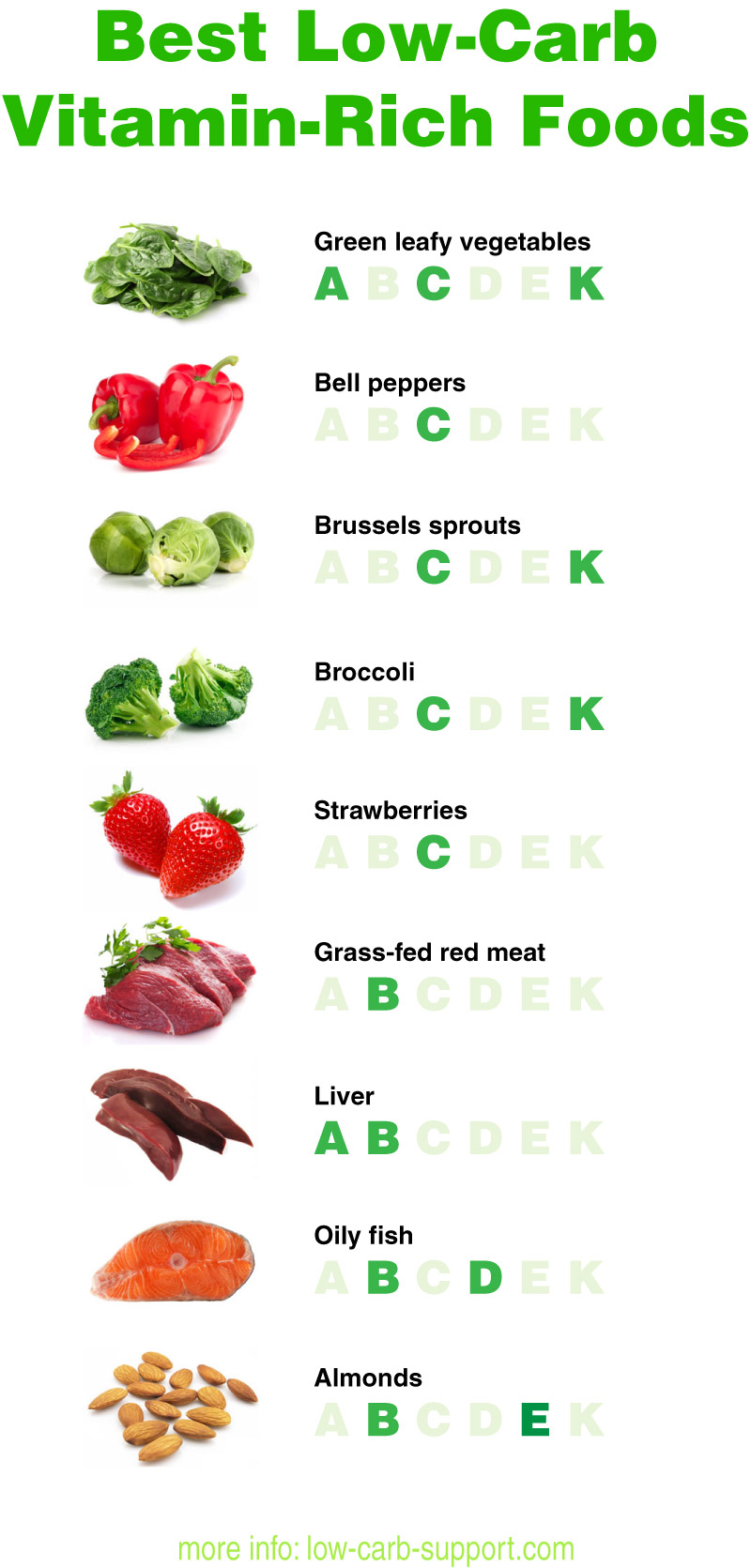
Amazing I am starting on Monday the 28th January for my daughter s wedding in August x
Thank you for this article.
I just visited the enemy’s camp and read the usual lie about keto and nutrient deficiency.
Knew they were wrong.
Now we have proof. Lol
Thanks Dwayne! “Enemy camp” – love this expression 🙂 Evil advocates of carbs!
The enemy camp are in denial. They don’t pause to think before they pass judgement on anything that might contradict their current nutritional dogmas.